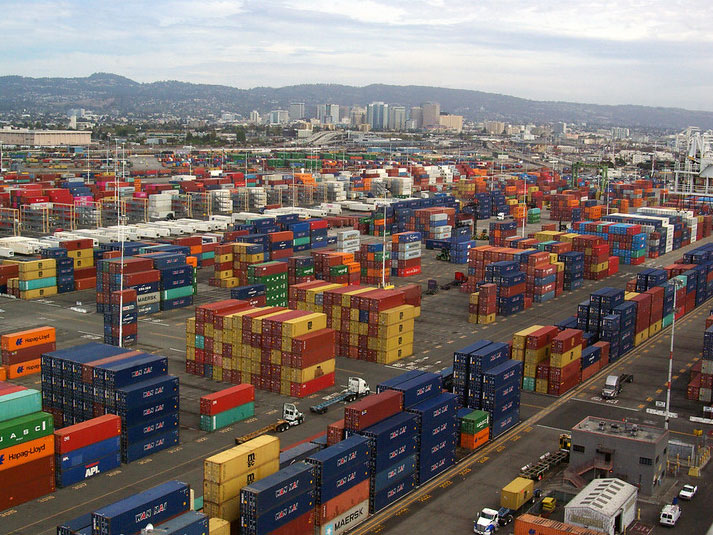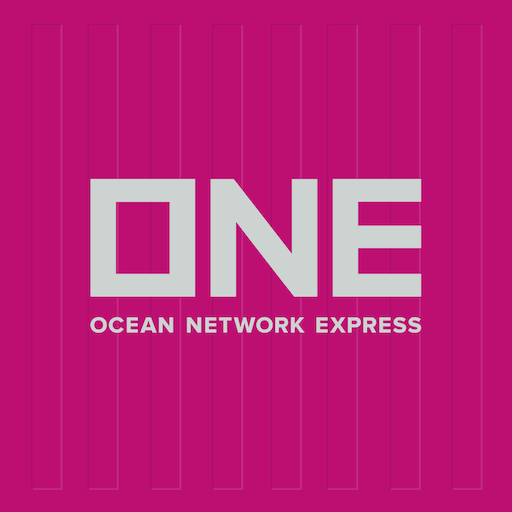Ajot: Port of Oakland harbor truckers speak out
Harbor trucking executives serving importers and exporters at the Port of Oakland are worried about the future of the Port especially after two local trucking companies, GSC and TGS, recently shut down.
They have urged changes in truck and cargo-handling operations at the Port including with the eModal truck appointment system.The eModal appointment system connects motor carriers, shippers and logistic service providers with terminal operators and port authorities and is the system used for booking appointments by truckers.
PCC Logistics Vice President Brandon McDonnell summed up the truckers’ sentiment by saying: “We believe that ensuring Oakland’s long-term viability requires a collaborative effort from the entire community. Our goal is to bring cargo back from other ports and create new opportunities within the Port of Oakland. We look forward to a time when we can truly say there is enough business for everyone.”
The Port of Oakland is the last port for many West Coast sailings prior to ships sailing to Asia. The result is the least sailing time for agricultural exports headed to Asia. Those timelines are longer when agricultural exports are loaded at Los Angeles and Long Beach.
Port of Oakland Maritime Director Bryan Brandes has noted container volume swings and uncertainty related to the imposition of Trump administration tariffs in 2025. He observed, “Importers and exporters are adjusting their supply chain timing and routing decisions in response to evolving conditions.”
On August 19th a panel of trucking executives’ spoke at a Harbor Trucking Briefing hosted by the Propeller Club of Northern California (PCNC) that took place at the Port of Oakland. The event was organized by Propeller Club Board members Leanne Andalis (Pasha Group) and Evey Hwang (Customs Brokers and Forwarders Association of Northern California).
The trucking executives identified a number of operational problems including the appointment system truckers must use at Port of Oakland container terminals which utilize eModal.
Advent eModal System
According to its website, the Advent eModal system operates: “Using the eModal® PreGate system, Terminal Operators can manage appointment slot scheduling to optimize yard operations related to servicing truck arrivals.”
eModal representatives were invited to attend the Propeller Club harbor trucking presentation but were “busy,” according to the Port of Oakland.
The eModal system came in for criticisms from the trucking executives in part because some companies are allegedly using AI systems to overbook containers blocking appointments for other truckers with legitimate needs to book appointments.
This resulted in one comment, “The solution can’t be just hope they cancel, and we can show up same day, because no one wants to ship with that uncertainty. The solution should require a real container number that’s against the booking on eModal. Then when we pull the container number, we make the appointment.”
Oakland Harbor Trucking Executives Speak Out
Steve Gardner, National Sales Director, PCC Logistics said the eModal system has been the victim of cancelled appointments due to some trucking companies overbooking on appointments and then failing to use them: “Our wonderful appointment system here in Oakland … there is six appointment systems in LA/Long Beach. There is one here. And my people … say the biggest problem is canceled appointments.”
Gardner said problems with eModal complicate delivery of refrigerated cargoes to the Port and this is prompting some agricultural exporters to shift cargoes on to ships at the Southern California Port of Long Beach: “they can’t book a load of fruit on a ship if they cannot book an appointment at the terminal.” “…I know that it’s a huge problem for the fruit exporters out of the (San Joaquin) …. Valley. It is one of the things that I do focus on. They are very concerned. They are always concerned about the Port of Oakland and what is going to happen next?”
Marcus Vierra, CEO, Best Drayage, also cited the eModal appointment system, “The way it works right now for export load-in appointments is there is nothing available on the day side for up to seven days out. So, when customers are asking us to book containers with them, we have to first check if there’s even a return appointment available at the terminal. And usually the answer is no…except maybe at 1:00 AM. We have heard … that there are bad actors in the trucking community that are using AI or some version of automation to take up to a 70 appointment block every day and then just not showing up…”
Scott Shimamoto, Vice President & Partner, Mutual Express urged more transparency: “I think in general the whole appointment system … we just need more transparency from eModal and the terminals … for example, like where did the canceled appointments go? Like, we’ve canceled appointments before, and we’ve never seen them pop back into the pool.”
He also worried about how terminals are managing night gate operations. “I know terminals are trying to encourage night gates and they are trying to say that daytime appointments are not being limited to push toward night gates, … I hear that, but also from a trucker standpoint, that’s what it seems like has happened. It seems like daytime appointments are limited to force us [truckers] to use the night gates. So how do we encourage what’s just a suggestion? A better way to encourage night gates would be, make it a good experience, make it a smooth experience for the drivers. Have ample support. … I mean, we’re all paying these extended gate fees … I feel like if the fees are going up, the support should go up too. … We should have someone to call to check on containers. I mean, drivers are sitting in the night gates sitting in the terminal. I mean, they feel stranded, they see the transtainer (a gantry crane that picks up containers) and sometimes it’s like not even moving. What are they supposed to do?”
Brandon McDonnell at PCC Logistics said companies want to support the Port of Oakland but believe the Port needs to do more to market itself, lower costs and streamline operations. Alarmingly, some ocean carriers are pushing customers to move their operations down to Southern California: “And I know steamship lines were actively trying to push freight down to LA and Long Beach. And if that happens, Oakland will slowly die … I was talking to a steamship line the other night at dinner. He said, ‘every time we come to Oakland, we lose money. And if we had our way, they would push some of the larger protein exporters to other ports. But because of the packing houses and slaughterhouses, they can’t manage that schedule.’ Another steamship line, they don’t keep equipment up here related to the citrus market. They say, “well, we have equipment in LA so if you want to use us, let’s go to LA.”
McDonnell added, “This is a pretty serious situation. I think this Port needs to market itself better … I know companies like us and Impact Transportation and others … have … put a lot on the line to stay in the Port to support the Port and invested (in) this Port …It almost brings me to tears because we sacrificed a lot and I don’t feel like we’re getting the return we deserve …”
Filex Fok, Founder & COO, Forward Logistics said in the past his drivers “could do five loads … Picking up five loads a day on (a) round trip is quite impressive … And then … now I think if I can barely find them, one load a day (it) is pretty lucky.”
Dominick Lee, General Manager, Impact Transportation, LLC said freight rates are down, and California regulations mandated tougher standards leading to owner operator truckers being treated as company employees making a bad situation worse, “Volumes are down. Our rates are down. Our rates are down beyond pre-pandemic levels. Meanwhile, we now have all these other regulations.”
Port of Oakland’s Response
The Port of Oakland’s Maritime Director Bryan Brandes responded that the Port takes the concerns of its truckers very seriously and is working hard to address them. He said that he and Port marketing director Carolyn Almquist will meet with any shipper who is dissatisfied with Port operations. He also said that the Port is working with truckers to improve the eModal service and reduce the problem with cancelled appointments.
Brandes said there are proposed upgrades … by eModal that will create a more simplified system with more transparency. The effect will be similar to a “one stop shop.” He added that: “Essentially, they are coming up with a system to where you’ll be able to see those cancelled appointments…” The upgrades are being tested right now, and some truckers are providing feedback. “Obviously, it has not rolled out to all the testing partners, they are doing the testing right now, so we are doing this with the early adopters, and we are looking for one more if anyone wants to join.”
Brandes said appointment issues, night gate issues and issues related to terminal access need to be addressed by interactions between truckers and the container terminals. Two terminal representatives from Stevedoring Service of America (SSA) and TraPac attended the briefing and pledged to work with truckers to address problems. Brandes said more participation with truck/terminal working groups will also help.
Determining de minimis impact
On August 13, 2025, a report “ State of Air Cargo: Elimination of De Minimis Exception and Increased Tariffs Send Air Cargo Volumes Plummeting” authored by Marina Mayer, Editor-in-Chief of Supply & Demand Chain Executive, warned:
“Air cargo volumes in the United States through May have declined approximately 25%, year-over-year, per estimates from freight forwarders and customs brokers. The decline has accelerated since May 2, when the de minimis exemption ended for goods from China. Since the Trump administration announced reciprocal tariffs in April, China-U.S. cargo volumes have dropped by up to 60%. Tariffs have severely impacted e-commerce bookings, which fell approximately 50% in May 2025.”
The report added that some Chinese importers that utilized air freight are already starting to ship goods by ship: “The elimination of the $800 de minimis exception for imported goods, combined with increased tariffs, is expected to send air cargo volumes plummeting for low-value e-commerce shipments. With de minimis exemptions unlikely to return, Chinese e-commerce leaders now send products into the United States via bulk sea freight shipments to US-based warehouses and distribution centers, abandoning their use of individual air shipments for direct-to-consumer fulfilment that previously drove cargo aviation growth.”
The $800 de minimis rule allowed goods valued at or below $800 to be imported into the US without incurring duties, taxes, or formal customs entry procedures.
The analysis also noted: “The daily number of trans-Pacific air freighters arriving at the Top 18 US airports has decreased by approximately 30% since April, according to Cirrus Global Advisors.”
Key takeaways
Other key takeaways from the report were:
- The implications of new trade policies are concerning and include declining demand for freighter aircraft and fleet expansion. This may be amplified by a downturn in freighter conversions, driven by rising component costs and procurement delays. Dedicated freighters increasingly dominate global trade volume over passenger aircraft belly cargo; volatility in the freighter market can drive significant systemic impacts.
- Air freight operators might take proactive measures to mitigate tariff impacts by relocating or onshoring some of their operations and adopting hybrid models that combine direct air fulfillment with pre-stocked forward warehouses in key markets. This approach has the potential to establish new partnerships with countries that can reach negotiated settlements and reduced tariffs, which could diversify existing freight routes and generate additional business for air freight carriers.
- US-based cargo airlines are actively seeking ways to offset higher import costs. Lower fuel prices can provide relief if demand remains stable, while rising jet fuel prices allow airlines to implement fuel surcharges that typically include profits above actual costs.
- Another cost-reduction opportunity involves consolidating air and ocean shipments under single customs entries, potentially reducing customs brokerage and government processing fees per shipment.
- Current forecasts suggest the air cargo market could experience a continued downturn in the second half of the year due to the persistence of new U.S.-imposed tariffs and potential retaliatory measures taken by other countries.
- The impact of new U.S. tariff policy will extend far beyond immediate cost pressures; new trade policy aims to transform international trade and recast global trade routes. As a result, the tariffs have been particularly destabilizing to the airfreight industry, driving price volatility and forcing comprehensive route planning overhauls, particularly within the e-commerce sector.
- The air cargo sector faces major headwinds within this evolving tariff environment. Cargo airlines must navigate an increasingly complex landscape of disrupted trade flows as manufacturers and retailers reconfigure supply chains in response to new levies. This will reshape network planning, capacity deployment, and aircraft acquisition strategies as carriers adapt to altered trade routes and cargo volumes.
Related Posts



